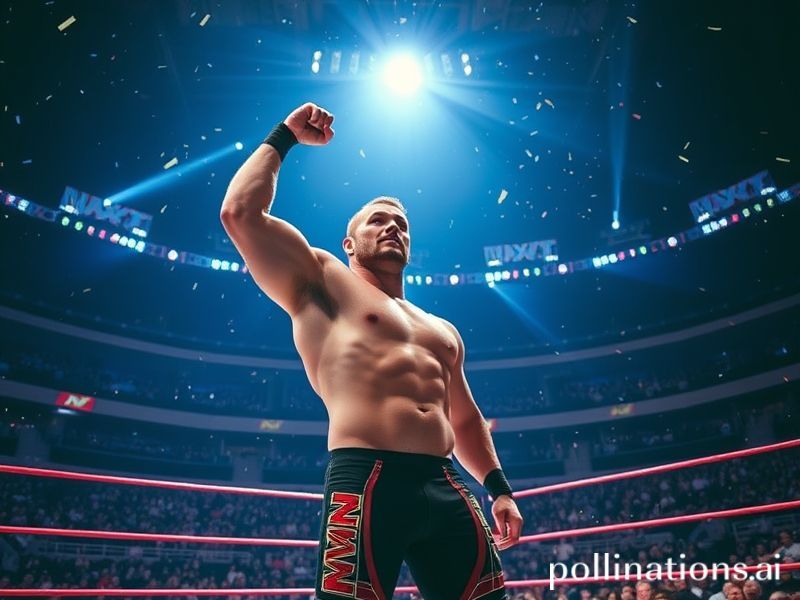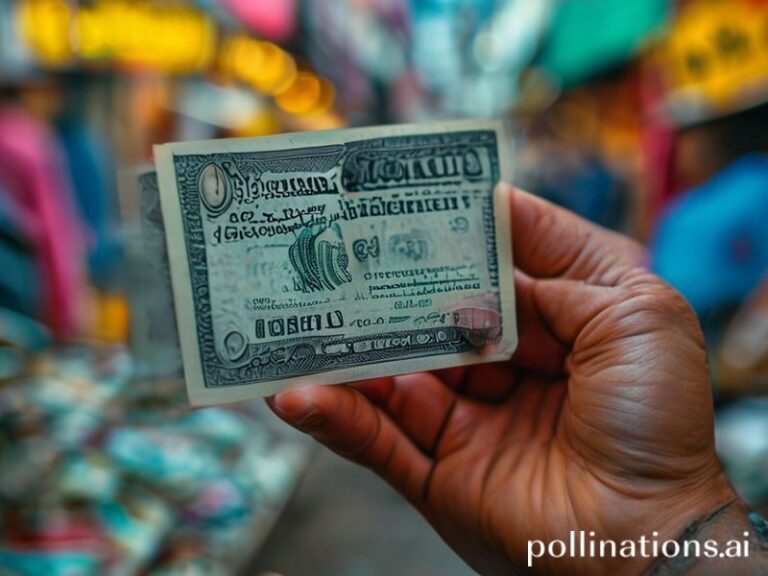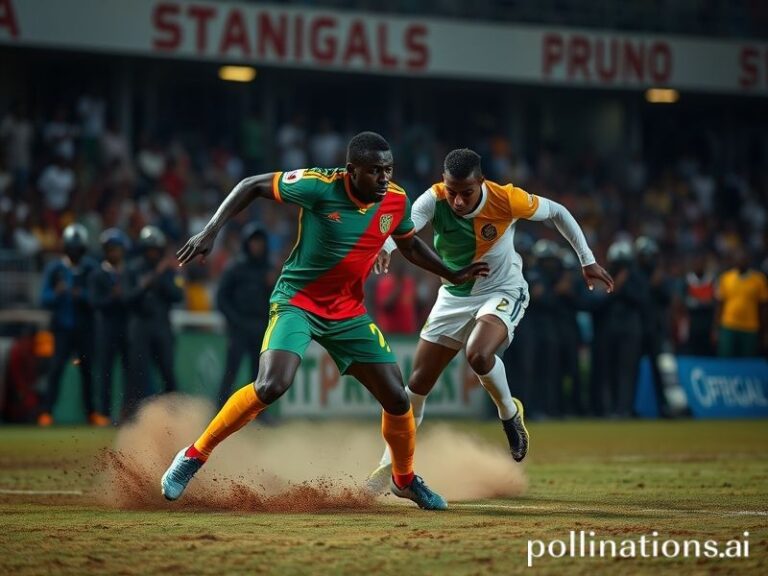Bron Breakker: Global Superstar or $21B Metaphor for Late-Stage Capitalism?
From the Ring to the World: Bron Breakker as a One-Man Geopolitical Metaphor
By Alistair “Graveyard Shift” McTavish, filing from a bar that still thinks the Cold War is on the jukebox.
In the fluorescent haze of Orlando’s WWE Performance Center—part sweat-box, part MBA case study—Bron Breakker, age 26, bench-presses 450 pounds while the algorithmic cameras zoom in on his deltoids like they’re natural resources. To the average viewer, he’s just another American strongman in trunks. Zoom out to 30,000 feet, however, and Breakker becomes a convenient parable for a planet that’s simultaneously bulking up and falling apart.
Let’s start with the obvious: the name. Bronson Rechsteiner legally changed it to “Breakker,” which sounds like what would happen if NATO tried to rebrand itself for TikTok. The surname alone feels like a sanctions package—“Breakker: now targeting your kneecaps and your supply chains.” It’s the sort of linguistic flex that makes the European Central Bank nervous and Vladimir Putin update his dead-lift chart.
Inside the United States, Breakker’s push is sold as wholesome generational ascendancy: son of Rick Steiner, nephew of Scott, heir to a lineage of suplexes and tax write-offs. Internationally, it reads more like soft-power projection. While Washington debates debt ceilings and which TikTok trend to ban next, Breakker’s biceps are doing the diplomacy—touring Saudi Arabia’s blood-money stadiums, popping up on India’s streaming charts, and politely pretending the UK’s energy crisis doesn’t exist. If Joseph Nye coined “soft power,” Breakker is its protein-shake cousin: flex power.
The numbers back up the cynicism. WWE’s parent company, Endeavor, just merged with UFC to create a $21 billion “sports entertainment” blob—roughly the GDP of Iceland if Reykjavík discovered creatine. Of that, international revenue now outpaces domestic, meaning Breakker’s spear-tackles are effectively underwriting quarterly reports from Jakarta to Johannesburg. In simpler terms, when Bron screams “Wooo!” after a military-press slam, several pension funds in Singapore quietly exhale.
Yet the global audience isn’t merely consuming muscle; it’s projecting anxiety. In Japan, fans tweet about Breakker’s “ganbare” spirit while their own birth rate free-falls. In Brazil, his no-nonsense haircut is memed as the antidote to carnival inflation. Even the Canadians—those polite introverts of North America—treat him like a living tariff on American arrogance: expensive, unavoidable, but weirdly entertaining.
There’s darker humor in how Breakker’s character arc mirrors the world’s own slow-motion heel turn. He began as the smiling rookie who respected legends; now he snarls, breaks necks (storyline, relax), and power-bombs senior citizens through commentary tables. Swap “legends” for “international norms” and you’ve got a fairly accurate timeline of the last decade: Kyoto Protocol politely power-bombed, Geneva Conventions frog-splashed, Twitter Terms of Service choke-slammed.
The carnivalesque irony peaks whenever WWE trots out the American flag behind him. Breakker stands under the stars and stripes like a walking, grunting metaphor for unipolar decline: still huge, still loud, but increasingly reliant on overseas merchandising to pay the light bill. When the crowd chants “USA! USA!” it’s less patriotic fervor than brand recognition—like shouting “Coca-Cola!” at a vending machine that might still accept your crumpled currency.
Consider the merchandise calculus: a single Breakker replica vest ships from Vietnam, retails in Berlin for €34.99, and is modeled by a teenager in Lagos on Instagram Live. Somewhere in that supply chain, a container ship burns bunker fuel equal to the annual emissions of Malta. Climate scientists despair; shareholders rejoice; Bron flexes. Balance, as ever, is for suckers.
Conclusion: Bron Breakker will almost certainly headline WrestleMania from a stadium whose naming rights belong to a fintech firm you’ll never understand. He’ll roar, the fireworks will bloom like cheap geopolitical metaphors, and for ten seconds the world will synchronize around the comforting fiction of good guys and bad guys. Then the feed cuts to commercial—probably an ad for electrolyte water mined from a glacier that no longer exists—and we’ll all remember the real main event: a planet in overtime, flexing harder as it fractures.
In the end, Breakker isn’t just wrestling opponents. He’s wrestling the collective cognitive dissonance of eight billion people who want their escapism supersized and their consequences shipped COD to the next hemisphere. And if that isn’t the most honest representation of international relations available on basic cable, I don’t know what is.







